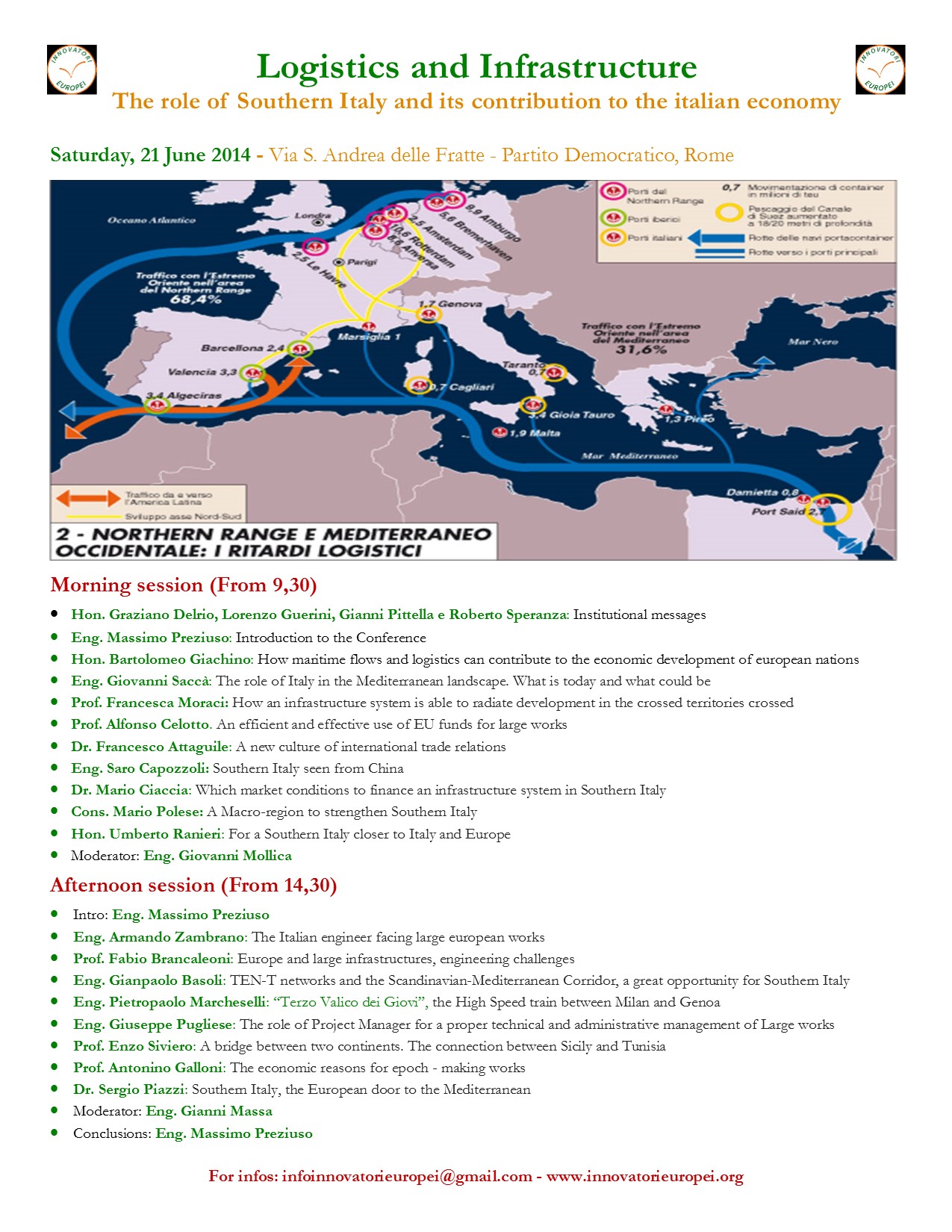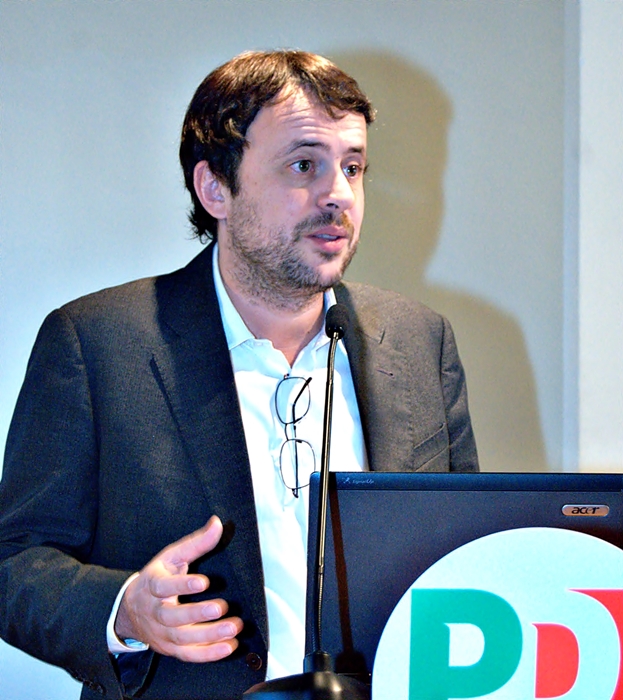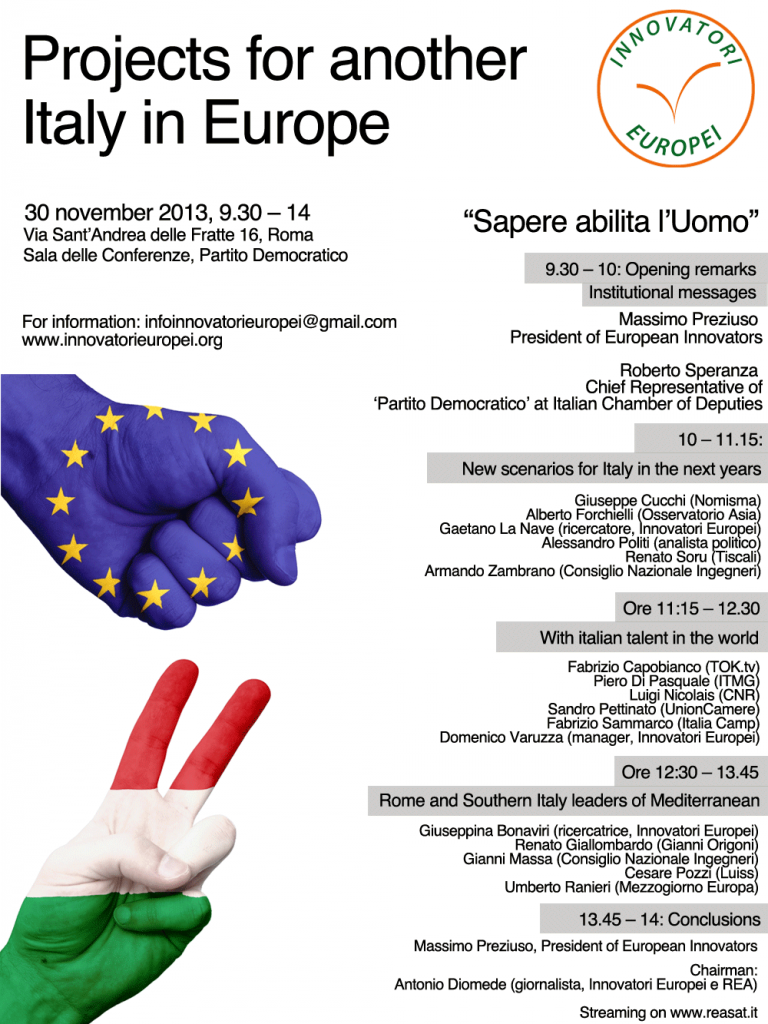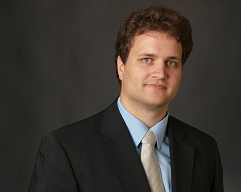Politics
21 June, Rome – Logistics and Infrastructure. The role of Southern Italy and its contribution to the italian economy
Final report from Projects for another Italy in Europe, 30 novembre 2013, Rome
National and international experts from academia , institutions , from industry and enterprise, many young people partecipated to “Projects for another Italy in Europe”.
After the messages received by the Minister Bonino, the President of the Chamber Boldrini , the Secretary of the Democratic Party Epifani , the Deputy Minister Catricalà, the Vice – Chairman of the European Parliament Pitella, a statement of support and appreciation to the initiative by the Mayor of Rome Marino, the video message from the leader of the House of Deputies Speranza opened the conference.
Massimo Preziuso , President of European Innovators , did a quick overview on the project , which started in 2006 as a place for development and design of indipendent policy, supporting the idea of the urgency of establishing a new political reformist and pro-European party , remains today an autonomous movement that operates in Europe and in the world .
The interventions , thanks to the distinguished speakers have pointed out – hoping for new directions of political and economic growth for Italy in Europe and in the world, in a context characterized by the difficulties of the United States , the complexity of the Chinese and Indian growth , the new opportunities from southeast Asia, and the natural but culturally difficult convergence with reality like Turkey or north Africa – the urgent need to strengthen the italian strategy and industrial policy.
It also became clear that Italy can be a leader in the software industry and know how based industries , and how the project European Innvoators , building collaborative networks for the promotion of Italian talents in the world is the lifeblood for the revival of a joint project to support Italy and Made in Italy in the world.
It has been so easy to go to the final session, remembering how European Innovators has already given way to political experiences with independent programs based on a new policy-making aimed at the transformation of smart cities and their governance in progressive optic .
From the conference, it is clear the need for a country that produces wealth and consumption in all the territories and put in a new network knowledge and production, in which medium towns and large cities, around a Smart Capital, remain the protagonists.
The need to give breath to a wider European movement , shared with many of the featured speakers, in a collaboration with the different pro-European organizations, based on the hot topics and more than actual 2014 european elections (during the 2014 first semester of Italian Presidency of Europe the real construction of a Euro-Mediterranean community , with a ”South of Italy” leadership, will be necessary), will see European Innovators as a protagonist of the Italian revival in Europe, starting with the next election campaign.
The construction of an Italian leadership in Europe and in the Mediterranean passes exactly by a renewed capacity to develop complex long-term projects. This will continue to be our goal and our commitment .
Projects for another Italy in Europe – 30 november, Rome
For a european sustainable development plan
By Alfonso Iozzo (October 2011)
In today’s radically changing world, which is characterised by the participation of
increasingly large sections of the population in the processes of economic growth,
necessitating rational and efficient use of natural resources (food, energy), Europe must
implement a strict policy of control of resources, in order to bring about an equitable and
sustainable transformation of its economic and production system.
In this regard, Europe has already made fundamental choices in the right direction,
from the aims stated in the Lisbon Treaty to the European Council’s decisions for 2020.
The route of strict budgetary discipline (both for states and for individuals) and sustainable
development is one that can be followed only through a common European effort. Growth
can be resumed only through investments that make European businesses competitive,
reducing the consumption and costs of energy and raw materials, maximising the use of
information technologies, developing and spreading the knowledge society, and
rebalancing purchasing power.
The progressive increase in the per capita income of people in the developing
economies is giving Europe enormous scope for exporting its quality goods and services.
But unless it is made perfectly clear that it is possible to start moving towards a new and
different stage of development, this crucial opportunity to include the European economy
in the new global cycle will be lost.
The capacity to produce high-tech industrial goods, advanced services and cultural
goods is already widespread in many sectors and areas of the European economy, but
this capacity will not spread, increase and improve unless it is part of a specific strategic
choice.
The creation of the common market, and then the single market, allowed Europe to
enter long expansionary cycles. What is called for now is a similar choice, geared at
ensuring Europe’s full integration into the new global economy. Although the proposals
circulating in this difficult period for the European economy are often along the right lines,
the fact that they are restricted to the single national frameworks reduces their feasibility,
effectiveness and economic impact.
The 1992 single market programme aimed to tackle the costs of the market
fragmentation of Europe, referred to as “non-Europe”; today, nearly two decades on, the
solutions being proposed are still restricted by the costs that have to be borne as a result
of “non-Europe”. One need only consider the most outstanding example, that of
investments for research – especially in the field of new energy –, in order to appreciate
that purely national programmes, not integrated at European level, are an appalling waste
of resources, completely incompatible with the necessary austerity policy that is now
shaping budgets in the both public and the private sector.
It has become essential to launch a “European plan”, limited but decisive, in order
to show Europe’s economic and social actors the direction that has to be followed. It falls
to the European Commission primarily to put the necessary measures to the European
Parliament and the Council of Europe and to present them to Europe’s citizens and
political, economic and social forces.
This “plan” must also cover relations with those areas that, on account of their
geographical proximity, are most closely linked with the EU, especially the Mediterranean
countries that have recently started a process of radical political, economic and social
change.
The investment plan once proposed with great foresight by Jacques Delors must
now be realised in a form designed to create the conditions of competitiveness,
sustainability and social coherence on which Europe’s revival depends.
It is up to the Commission to indicate which projects to support, to make sure they
are feasible and to ensure that they are managed in a rigorous and transparent manner.
Ultimately, the European budget should be financed entirely by the EU’s own resources,
and the carbon tax, the tax on financial transactions, and the new European VAT should
be its key components. The proposals already put forward by the Commission with regard
to the carbon tax and the tax on financial transactions are, indeed, essential elements of
the “plan” and their adoption would secure it the funding it needs.
The carbon tax, moreover, could push the economic system in the direction of
sustainable choices; in addition, it is compatible with transitional measures aimed at
increasing the tax on goods imported from areas that have not adopted similar measures.
The tax on financial transactions, on the other hand, could be exploited as a means
to ensure that the change of economic system is socially sustainable in the transition
phase, as it would allow significant refinancing of the European Globalisation Adjustment
Fund (whose tasks would be redefined) and the shifting of at least part of the tax burden
from unskilled and precarious labour to financial income.
The launch of the “plan”, with its common European taxation measures, should be
accompanied by a reduction of the costs currently sustained by the single member states
in areas of joint action.
In order to guarantee that resources are used with the utmost transparency and
efficiency, it would be necessary, wherever possible and certainly in the field of research
into new energy sources, to activate specific programmes and, where appropriate, to
create agencies to oversee the use of the funds.
Since its main purpose would be to stimulate investment, the “plan” would have to
include major multiannual projects and the financing should cover a number of years. This
would mean starting to issue European project bonds and involving the EIB in the
preparation and management of the said investments. These would be implemented
through an “Assets Fund” which would retain ownership of the investments made (in areas
funded by the “plan”), thereby ensuring the availability of resources for future generations
– resources that would also be generated by deferred income on these investments.
Financial aspects
The tax on financial transactions would have to generate around EUR 30/40 billion
of additional resources for the European budget in order to guarantee adequate funds for
research and for the refinancing of the “fund “set up by the Commission in 2006 to cope
with the difficulties created by the adjustment of the labour market to globalisation. This
would bring the EU budget close to the ceiling (1.27 % of GDP) previously agreed
between the member states.
In past expansionary cycles Europe managed to create over 15 million new jobs.
The present “plan”, being designed to boost competitiveness, particularly of the services
sector, thereby halving the current unemployment rate, should allow the creation of at
least 20 million new jobs.
The investments envisaged by the “plan” should amount to at least EUR 300/500
billion, to be paid over 3/5 years. To cover the issuance, by the EU, of European project
bonds or guarantees, the carbon tax would have to be capable of generating income in
the order of at least EUR 50 billion/year. The use of the carbon tax to support the
investment plan in the start-up phase would be entirely justified by the fact that the tax
itself would tend to diminish as the European economy – also thanks to the proposed
“plan” – made greater use of non-CO2 generating energy sources.
At the end of the “plan” the Union would have assets probably worth at least twice
the investments made, thereby guaranteeing the upcoming generations adequate support,
rather in the way young Norwegians benefit from a state pension fund fed by oil revenues;
in this case, however, the revenues would come from the new energy sources created
under the “plan” through investments and research spending. In particular, the “Assets
Fund” could support the entry of young Europeans into the working world, through
community service projects aimed at young people who have come to the end of their
studies (along the lines of the “Erasmus” projects), training projects geared at eliminating
the phenomenon of insecure employment, and projects promoting self-employment and
the development of youth entrepreneurship.
Partial or complete activation of the “plan” by a group of member states
To guard against the possible emergence of insurmountable difficulties precluding
the participation of all the states, provision must be made for the possibility of a group of
states (probably the eurogroup and other interested member states) pressing ahead with
the “plan” without the others. This could be done by applying the rules on enhanced
cooperation, as already envisaged by the recent “Euro Plus” proposals on competitiveness
presented by the German government.
Interview with Sebastian Nerz – Leader of the German Piratenpartei
by Massimo Preziuso – Innovatori Europei
Sebastian Nerz (photo made by Fany Fazii) is a 28 years old bioinformatics from Berlin and Deutsche Pirate Party leader. The Piratenpartei Deutschland are a striking example of how the speed of the Internet and the creativity of people, put together may achieve real and extraordinary change in modern societies. With a mission primarily oriented to issues like the ‘”free Internet”, the “privacy” and the “open government” the Piraten are emerging as primary political actors in Germany, with their 9% in September 2011 regional elections in Berlin, obtained after the success of their older cousins - PiratPartiet – in Sweden (with their 7% in 2009 European elections).
Let’s figure out with Sebastian how this success came and if this wave of positive change is also coming to us and in which form.
Dear Sebastian. First of all thanks for your time.
As you know, Innovatori Europei is both a (light) movement of political ideas – trying to support change in Italy and Europe – and an observatory on new and interesting happenings around the world. For this reason, we have followed with great interest the important result of the Piraten in the regional elections in Germany held this month.
1) An unexpected success for many, but I guess long planned. How have you grown up and what are the characteristics of your success that can be transmitted to other bottom – up political initiatives born aroud the Internet?
The pirate movement originates from Sweden, where it was founded in 2006. In the same year the German Pirate Party was founded in Berlin. In 2009 the government of Germany proposed the introduction of a censorship system, designated to fight child pornography. While the goal was a good one, the means were not. Building a system that allows to restrict access to websites can only lead to misuse. This proposition led to a very intense discussion in Germany. The pirate party was among the leaders of the opposing parties.
In those days the pirate party Germany grew from roughly 800 to roughly 10.000 members. The discussions have not been nice. Pirates have been named rapists, child molesters, and whatever else because some politicians (and media agencies) did not understand that fighting a mean is not the same as fighting the problem. We kept up fighting against the “Zugangserschwerungsgesetz” law. In the end we won. The law was passed, but it was never actually enforced and has now been canceled.
I believe that this shows: Be true to yourself. Whatever you do, people will attack you for it. People will misunderstand your intentions. Well, then explain it again. And again and again and again.
Afterward the pirate party rebuilt its structures. We needed to adopt to the new situation. Discussions structures working with 800 members are not necessarily working with 10.000 members. This is a very difficult and sometimes frustrating process.
And what we had to learn is how to leave the internet. The net is a wonderful tool to lead discussions with others, to meet and talk, to publish your ideas. But you will never reach all of the people if you stay there. Develop your ideas – and then get out and on a marketplace and discuss your ideas and propositions with the people out there! They have a lot of important things to say. So listen to them. Explain your ideas. Try to work as transparent as possible. If you do it right you have nothing to loose from transparency.
But the most important point is: be honest. Politicians are making errors. This is quite normal. If you try to hide your errors, they are going to come to the light in the worst possible way. So just be honest to your voters and to yourself. And don’t shy away from things only because others are using (or not using) them. You have to find YOUR way of doing stuff and then stick to it.
In short: Use the tools provided in the net to form a group. Meet online and offline. Discuss your ideas. Open your group for external feedback. Work transparent. Be honest. Don’t hide your errors. Don’t hide your success. EXPLAIN your ideas. Many politicians just say „do this“ – but they don’t explain it. This is not going to work for you!
2) Your activity as Piraten is strongly connected with the Internet, as you work for concepts like Open Governance, Privacy and Free Internet. What is your view on the Renewable energy policies, seen they are very strongly connected with the idea of “distributed political and economic power”? And which is your view on the creation of a real (renewable) energy common market at EU level ?
The pirate party Germany is a strong supporter of renewable energy policies. Politics and economy have to stop being short-sighted. We neither have unlimited supplies of coal nor of oil and we have no idea how to handle the risque of nuclear fission plants (quite apart from the fact that there is no unlimited supply of Uranium either).
And the only way to really build a strong renewable energy market is to build a super-national market. We have lots of sun in southern Europe, there are lots of possibilities for pumped-storage power stations in middle and northern Europe, etc In addition by building a super-national energy market some of the problems (e.g. daily fluctuations of the amount of energy needed) can be solved (or at least reduced).
3) What are your goals in Germany? You also want to look out, in countries like Italy? Are you thinking about developing a sort of federation of the Pirate Party in Europe?
We want to change the way politics are working. Politics in Germany are traditionally held behind closed doors. Only the results of discussions are being published, how, who and why decisions have been made is seldom known.
In addition politicians are not honest to their voters. They are promising lots of things if an election is upcoming, but after the election has been held, everything is forgotten.
This destroyed the trust between politics and society. In recent polls politicians have been elected the 2nd least favored job. People expect politicians to lie. Thus we have an ever decreasing percentage of people actually voting (usually around 50-60%). This leads to very frightening democratic problems – if the majority of people is not participating in an election, does it really have a democratic legitimacy?
So we want to change the way politics are working. We want to achieve transparent and open politics. And our experience shows us that people are accepting errors. Politicians are human and human tend to make errors. That is okay! Hiding an error is not.
Apart from that we want to establish more participation processes. People should be able to participate in democratic processes. Politicians need their feedback in order to build working laws – so there should be a strong participation process established in our democracy. At the moment people are not able to participate apart from the regular elections. So we want to change this too.
Another important point are human and civil rights. The last years have seen quite a number of security laws being passed (data retention policies as a recent example). The balance between freedom and security has been tipped towards security. We have to re-balance this scale! Security laws have to be checked for their efficiency and whether they are really needed.
I could continue writing a long essay – about education, why its needed for a stable and democratic society and why the current educational systems in Germany are not sufficient. About a former welfare-state that has reduced its social systems to something that is not worthy of this name – but this would take too long.
In short: We want to change politics. We want to rebuild a social-liberal, democratic, free society with educated citizens, a strong social system, a transparent state that leaves the citizens to themselves and open politics allowing intense participation.
4) Europe is undergoing a complicated time, mainly as a natural result of global phenomena: there is a huge part of the world that rapidly grows and leave western countries poorer. What can we expect in the coming months and years? Shall Europe return to be protagonist, or shall we risk it leaving the main scene?
This will depend strongly on our own decisions. Are we re-enforcing the European bonds or are we trying to hide between national interests? Are we capable of building a strong super-national, democratic society or do we continue using the EU for unpopular decisions?
Europe has a strong economy, many talented engineers and well-educated citizens. We have all the resources we need to stay strong and wealthy in a globalized world. But we have to re-invent the European idea to achieve this goal.
And we have to accept that other parts of the world have a right to live good as well! We cannot continue to live on the cost of others. Following that path could only lead to problems.
5) What is your advice to citizens who want to commit in a beautiful country in a deep and unique crisis period (like Italy)?
Get some information about the root of the problems. Talk about them. Unite with other citizens. Don’t let yourself be frustrated, because whatever you want to achieve, it will take time and it won’t be easy. And don’t let yourself be stopped by minor problems or differences.
It is quite often that we see unification of diverse civil rights organizations working for an important common target. And then they split about some minor differences. This is plain stupid. As long as the main goal is more important then the differences one should continue working together to achieve it! This does not mean that you will continue to do so for all eternity. And perhaps you will have divergent goals in different issues.
That’s okay. Combine for your main goal, diverge for your secondary goals. That way you can achieve much more!
Another important topic is spreading information. The modern net provides lots of new and interesting opportunities to spread information! Start a blog, link with others, use Twitter, Facebook or Google+ to build networks. Yesterday I have listened to a presentation made by a German civil rights activist. She told us „Even if your blog is only read by two people, it is well worth writing it! Two people are two more then zero“. She is right. Perhaps those two are talking to their friends. And they continue to do so – and suddenly everyone is talking about your ideas!
And don’t let yourself be deflected. Perhaps you are reaching some minor goals – but this does not mean that you can stop working! Being a civil rights activist is an ongoing job. And it is one that you can never stop. Because what was won in several years can be lost in days.
6) To end this interview with a proposal: in Italy various innovative inter – parties political initiatives are starting (i.e. The Outsiders, whose I am a founding member) and I imagine the same is happening in your country. Would you like to see Germany and Italy closer via their innovative political movements? What do you think about the creation of a Deutsche – Italian (and later European) network? I am certain it would be a great way for our countries to learn each other from different but strong experiences.
Super-national networks are very, very important. As I have already stated the pirate movement was intentionally founded as a super-national network of parties. Many of our current problems are in fact not national but super-national – so the only way to handle them is on this level!



